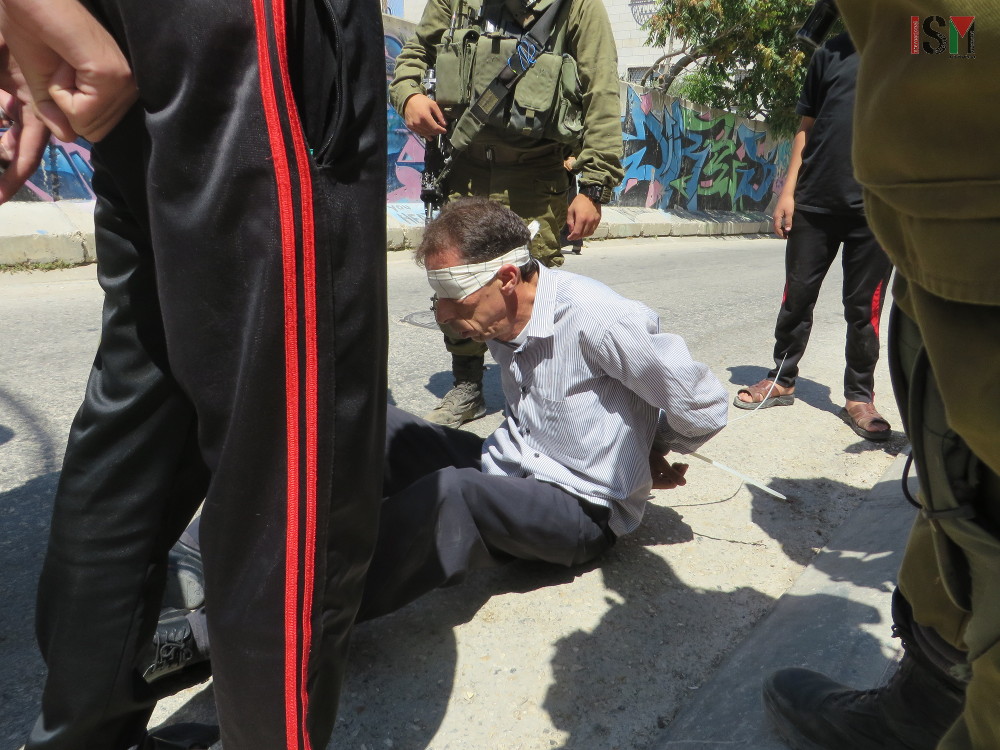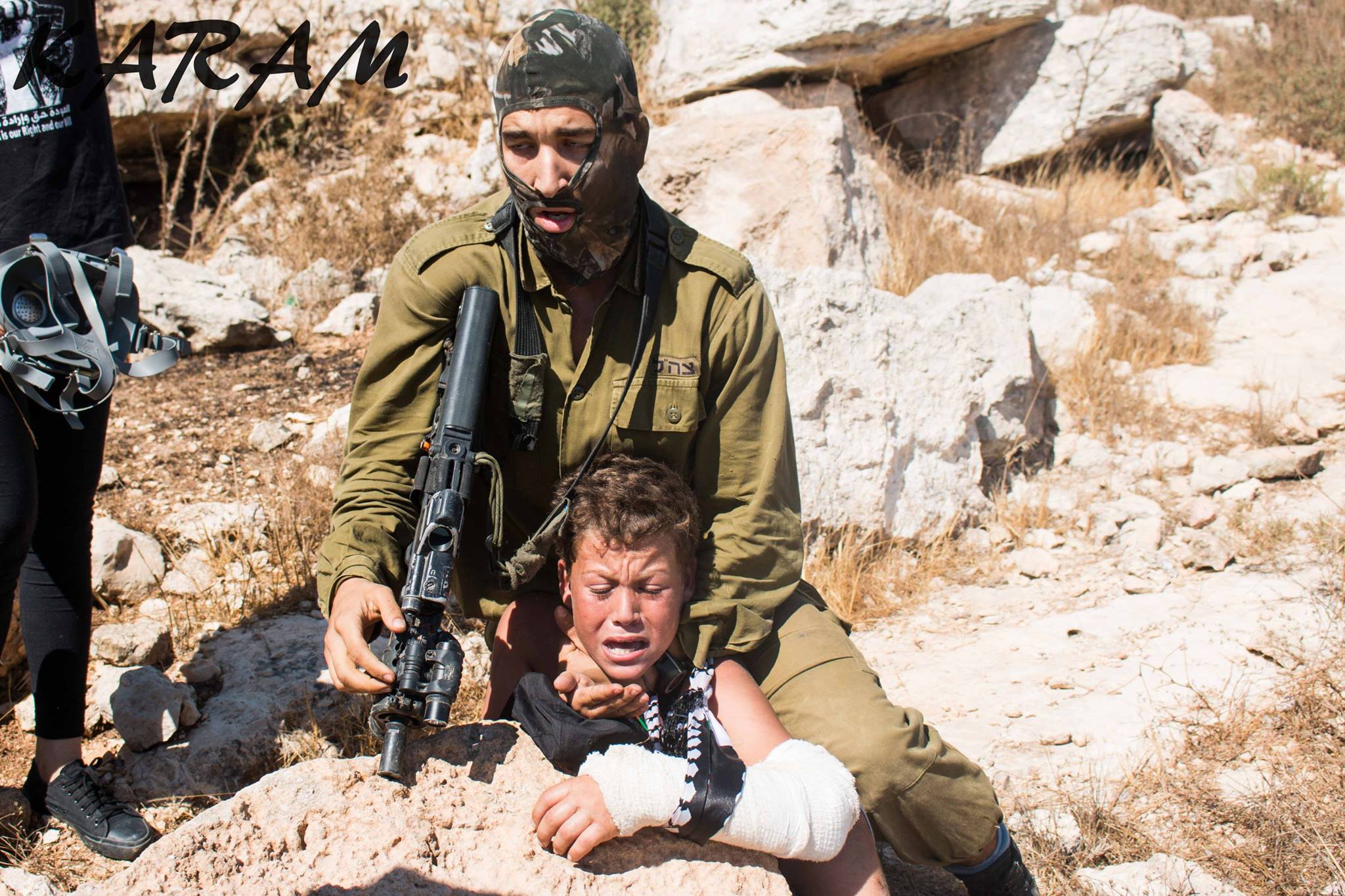Author: ISM Media
-
Violent arrest of Palestinian man in al-Khalil (Hebron)
29th August 2015 | International Solidarity Movement, al-Khalil Team | Hebron, occupied Palestine A 52-year old Palestinian man was arrested at Shuhada checkpoint in al-Khalil (Hebron) yesterday, for ‘not obeying soldiers’ orders. Israeli forces painfully handcuffed and blindfolded him. Around 1:30 pm, Hisham Azzeh walked through Shuhada Checkpoint in order to reach his house that…
-
Continual harrassment, threatening and intimidation of Palestinian family by settlers in Hebron
25th August 2015 | International Solidarity Movement, al-Khalil Team | Hebron, Occupied Palestine The Palestinian Abu Rajab family in the occupied West Bank city of al-Khalil (Hebron) is facing continual intimidation by groups of settlers and Israeli forces protecting these settlers in their attempts to take over the Abu Rajab family home. In the last…
-
Two people violently arrested at peaceful demonstration in Nabi Saleh
28th August | International Solidarity Movement, al-Khalil | Hebron, occupied Palestine UPDATE: A court just ruled to keep Vittorio Fera in prison until an actuall decision is taken on Monday. He was violently thrown to the ground and arrested by Israeli soldiers in Nabi Saleh yesterday. He is being accused of throwing stones and attacking…



